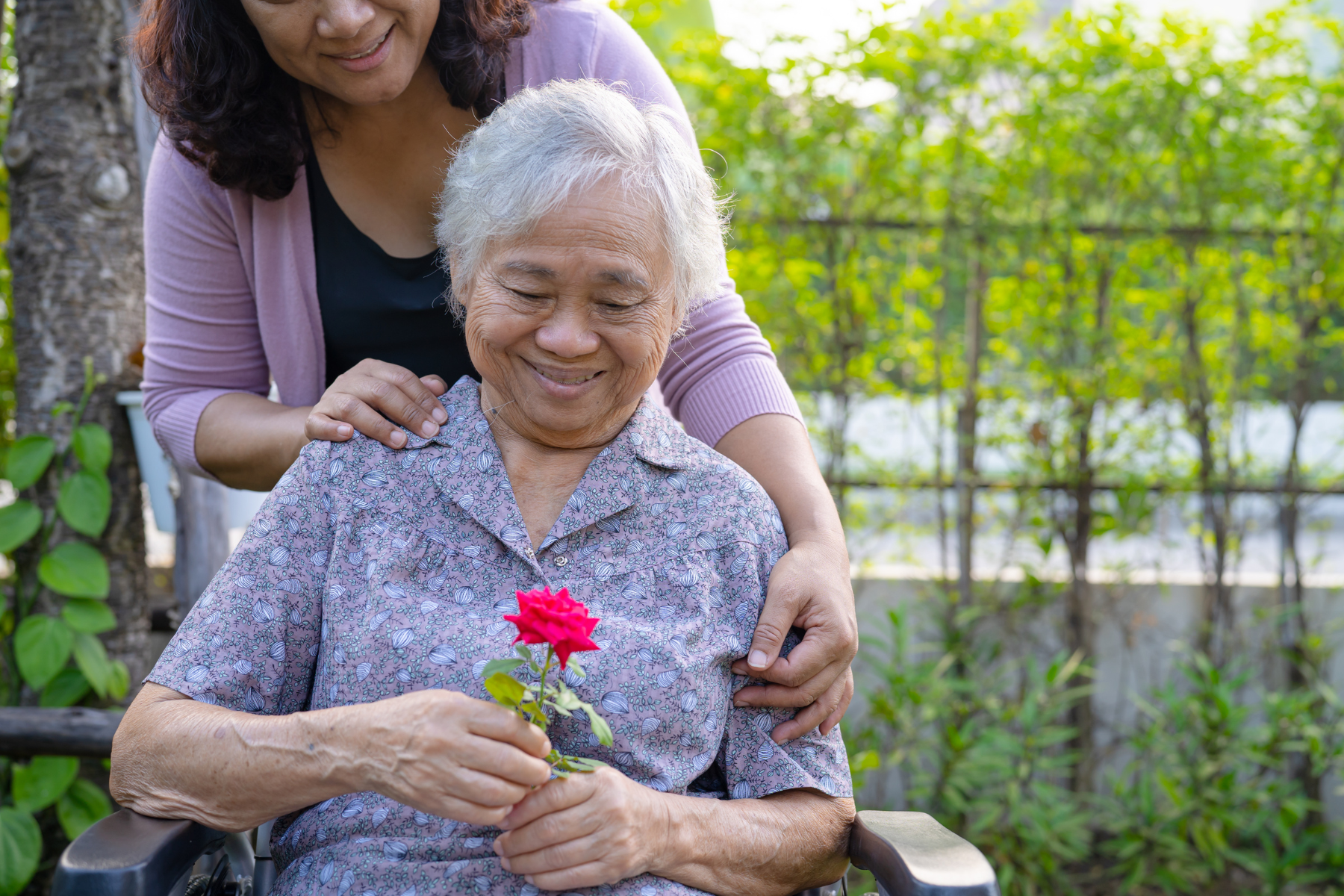

Visiting a loved one in memory care can be a rewarding, meaningful experience, but it can also come with some emotional challenges. As dementia progresses, the way you connect with your loved one may change and recognition may shift. Still, your presence can provide a powerful comfort, even when conversation becomes challenging.
At Bethesda Senior Living Communities, we understand the value of these visits for families and residents. Below, we offer practical tips to help you connect with your loved one in ways that are calm, respectful and supportive. Whether it’s your first visit or one of many, a little preparation can go a long way toward making the experience a positive one.
Preparing for a visit with a loved one in memory care begins before you check in at the community. A little preparation can help you feel more confident, align your expectations with your loved one’s reality and ensure your time together is as smooth and comfortable as possible.
Your loved one’s current memory stage has a significant impact on their cognitive and emotional state. Before you visit, understand the level of your loved one’s dementia and the symptoms they typically experience. Staff members and care providers in the community can update you on their day-to-day cognition and awareness levels and help you set realistic expectations for the visit.
Your loved one’s recognition and communication abilities can vary from day to day, so it’s important to let go of expectations around what the visit “should” look like. During the visit, focus on remaining patient and compassionate, and be present in the moment rather than being concerned about what your loved one remembers.
Visiting a loved one in memory care is most meaningful in a calm, comfortable setting. Small adjustments to your approach and the surroundings you choose for your visit can make a big difference in helping your loved one feel safe and at ease.
When you arrive at the community, talk to staff members or ask your loved one directly whether a private or communal space is better for the visit. Many communities under the Bethesda Senior Living Communities umbrella offer quiet, low-stimulus areas ideal for these visits. If the weather is pleasant, consider spending time in a secure outdoor courtyard or walking path for a peaceful change of scenery.
Begin your visit with a slow, gentle greeting. Use a calm voice and maintain low energy to avoid overwhelming your loved one. Smile, make eye contact and greet them by name. Whenever possible, communicate at eye level with open, relaxed body language.
Memory loss can make communication feel challenging, but meaningful connections are still possible. Even if verbal communication is difficult for them that day, your nonverbal cues can provide reassurance and emotional connection.
Because dementia can make it difficult to track conversations, it’s helpful to use short, clear sentences and speak at a relaxed pace. Stay away from complex language or asking multiple questions at once. Gently introducing yourself each time can help your loved one feel more at ease, especially if they seem unsure.
Throughout the visit, focus on entering into their world and offering reassurance. This will often mean focusing on feelings instead of facts. Even if a story isn’t true, validating their emotions can keep the interaction positive and nurturing.
No matter how prepared you are, there will be many emotional moments during your visits, especially as your loved one’s condition progresses. Visits don’t always go as expected, and it’s normal to feel a mix of joy, disappointment and even grief. Being prepared for these emotional moments can help you respond with compassion and understanding.
Families often look forward to visiting their loved ones in memory care, which can make it especially difficult when they are met with emotional outbursts, confusion or agitation. It's important to remember these reactions are symptoms of the disease and not a reflection of your relationship.
After the visit, give yourself time to process your emotions. Speaking with a staff member, therapist or support group can provide reassurance and help you cope with the challenges of caregiving.
It can be heartbreaking when a loved one doesn’t know how you are, but it’s important to not take it personally. Once again, this is a common symptom of dementia and doesn’t reflect your relationship or history with them. Instead of focusing on recognition, focus on being present. Your calm, kind presence still brings comfort and connection.
Staff members are valuable partners in helping visits go smoothly. Before each visit, check in with staff to see how your loved one is doing, including what they’ve been enjoying lately and when they tend to be most alert and relaxed.
Try to avoid visits during meals, bathing or scheduled activities unless caregivers suggest otherwise. It also helps to go in with a flexible mindset and be willing to cut the visit short if your loved one is tired, distracted or not up for a visit that day.
With thoughtful planning and a gentle approach, your visits can bring comfort and familiarity to your loved one in memory care.

15475 Gleneagle Dr
Colorado Springs, CO 80921
Phone: (719) 481-0100
Email: geninfo@ba.org



